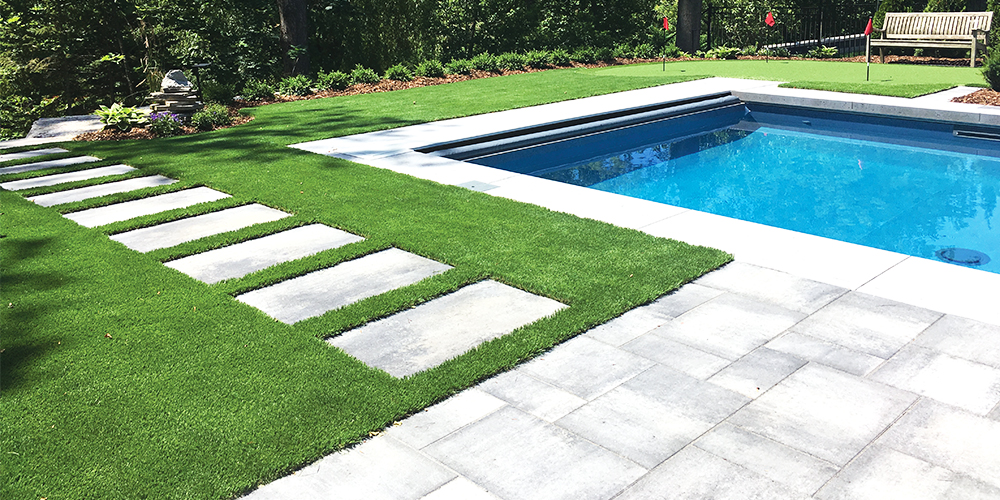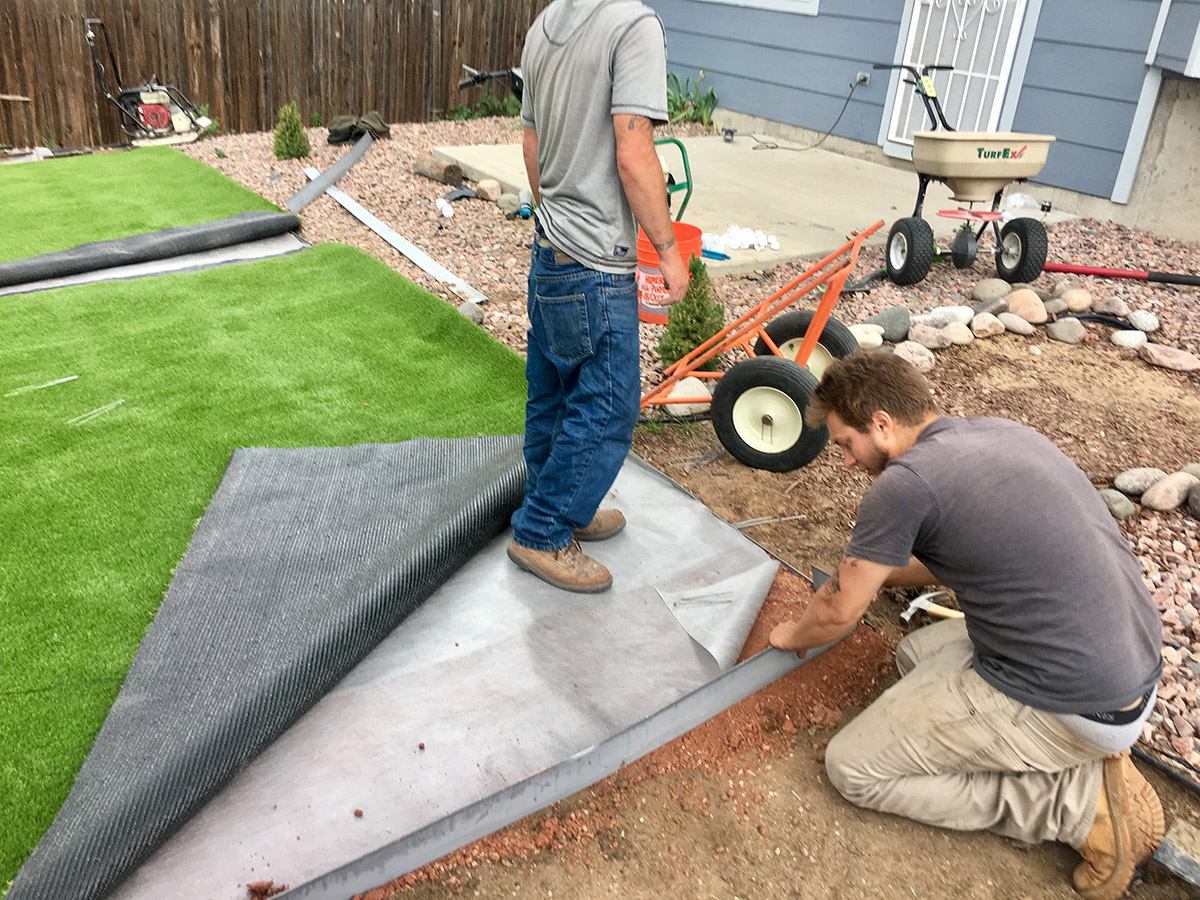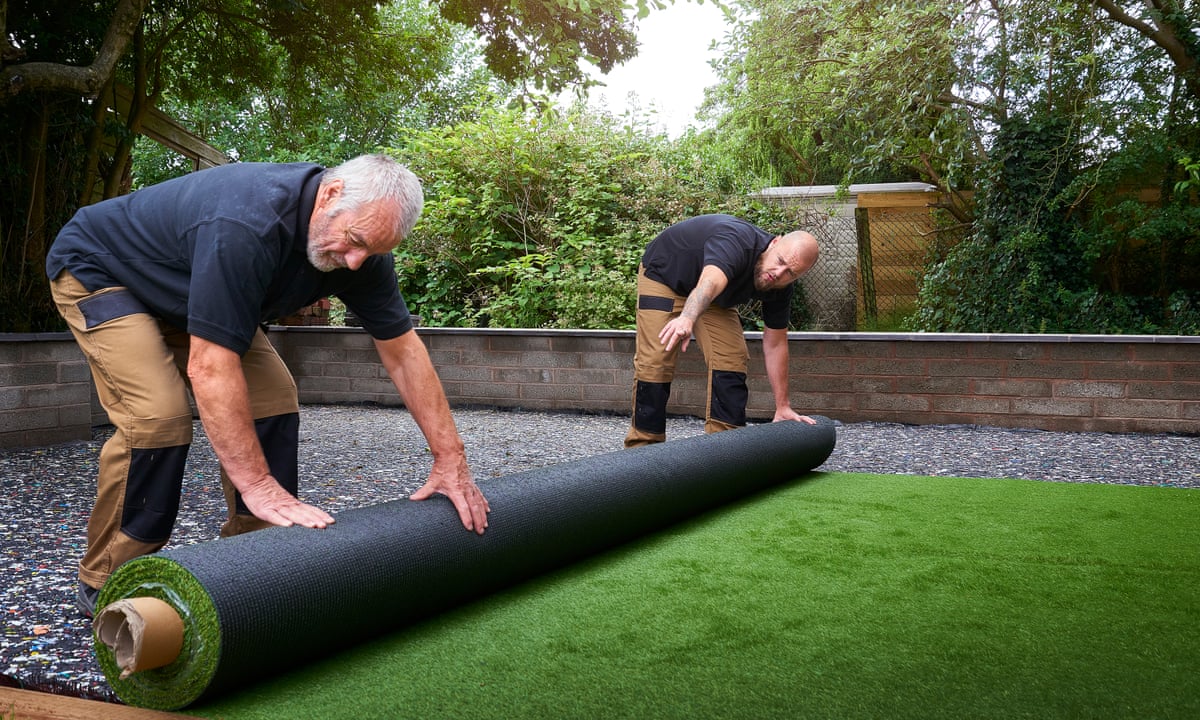Enhance Your Yard with Reliable Turf Installation Phoenix AZ Services
Enhance Your Yard with Reliable Turf Installation Phoenix AZ Services
Blog Article
Explore the Environmental Conveniences of Opting for Artificial Grass Solutions
The adoption of synthetic grass solutions offers an engaging possibility to attend to pressing ecological obstacles. By dramatically minimizing water usage and lessening the application of harmful chemicals, these alternatives not only advertise sustainable landscape design yet additionally secure neighborhood ecosystems. Additionally, the reduced carbon impact connected with reduced maintenance activities adds to a much more lasting method to land management. Nonetheless, the ramifications of these benefits expand beyond simple conservation initiatives, questioning concerning their long-lasting effect on habitat preservation and total environmental balance. Discovering these dimensions exposes a complex interaction worth considering.
Water Conservation Advantages
Among the most significant advantages of synthetic grass is its capacity to conserve water. Standard turf lawns need significant watering, especially in areas prone to drought or water limitations. On the other hand, synthetic grass does not require watering, considerably decreasing the general demand for water sources. This feature is especially helpful in deserts where water deficiency is a pushing problem.
By getting rid of the need for normal watering, synthetic grass adds to sustainable landscape techniques and helps mitigate the ecological influence of excessive water usage. The preservation of water expands to the reduction of runoff, which can lead to soil erosion and river air pollution.
Additionally, the installment of synthetic grass permits municipalities and house owners to designate water sources more effectively, concentrating on necessary uses such as alcohol consumption water and farming. The shift towards fabricated grass not only advertises liable water usage yet also aligns with wider environmental goals targeted at protecting all-natural resources.
As neighborhoods significantly focus on sustainability, the water preservation benefits of artificial turf present an engaging situation for its fostering in commercial and domestic landscaping tasks.
Lowered Chemical Usage
The shift to synthetic grass considerably lowers the dependence on chemical therapies frequently utilized in all-natural yard upkeep. Conventional turf administration commonly entails the application of chemicals, herbicides, and plant foods to promote development and control insects. These chemicals can position threats to human health and wellness, local wild animals, and the atmosphere, contributing to dirt and water contamination.
In contrast, man-made turf gets rid of the need for these hazardous substances. By lessening the launch of artificial substances right into the community, man-made turf advertises healthier dirt and water systems.
Moreover, the absence of chemical runoff connected with fabricated grass installations assists secure regional waterways from pollution, supporting water life and keeping biodiversity. Artificial turf companies phoenix. As areas significantly focus on sustainable techniques, choosing synthetic grass presents a practical service that lines up with ecological conservation goals. With this shift, homeowner can enjoy lavish environment-friendly spaces without endangering environmental health and wellness, leading the way for a more lasting future
Reduced Carbon Footprint

In addition, the setup of synthetic grass can result in substantial water preservation. Natural grass require considerable quantities of water for irrigation, which not just includes in the carbon footprint connected with water extraction and treatment yet likewise pressures regional water sources. On the other hand, artificial lawn needs minimal upkeep, needing no watering, thus significantly decreasing water use and its connected energy expenses.
Furthermore, the long life of synthetic grass adds to its lower carbon influence. With a lifespan of up to 15 years or more, the requirement for regular substitutes is diminished, causing much less waste and reduced power usage in production and taking care of traditional turf alternatives. In general, synthetic grass provides a sustainable option for ecologically mindful landscaping.
Habitat Conservation
Habitat conservation is a critical consideration in the dispute over landscape design selections, specifically when contrasting synthetic grass to natural yard. All-natural lawn yards typically call for considerable upkeep, including the usage of plant foods, herbicides, and pesticides, which can adversely impact neighborhood communities. These chemicals can leach right into the soil and rivers, you can find out more damaging indigenous flora and animals and interrupting local habitats.
In comparison, man-made turf provides a possibility to decrease the eco-friendly footprint of landscaping. By choosing synthetic grass, homeowners can decrease the disruption of all-natural habitats linked with conventional grass treatment practices. Man-made turf gets rid of the demand for unsafe chemicals, thus shielding close-by wild animals and maintaining the stability of bordering communities. Moreover, the installment of synthetic grass can bring about the conversion of former lawn locations into more biodiverse landscapes, such as pollinator gardens or indigenous plant areas, which can support regional wild animals.
Ultimately, the transition to synthetic grass not only conserves water and reduces upkeep efforts however also promotes an extra unified partnership in between human activities and the all-natural setting, promoting environment preservation in the procedure.
Long-Term Sustainability
Lasting sustainability is a vital variable in examining the advantages of artificial turf over conventional lawn yards. Among the most considerable advantages of artificial grass is its durability; it can last approximately 15-20 years with very little upkeep, whereas natural yard requires constant reseeding and substitute. This longevity lowers the requirement for continuous resources, such as water, plant foods, and pesticides, which are essential for maintaining a healthy and balanced turf yard.
Furthermore, synthetic grass contributes to a reduction in carbon discharges connected with grass care devices. Conventional grass usually call for gas-powered mowers, trimmers, and blowers, every one of which add to air pollution. Turf installation phoenix az. On the other hand, artificial turf removes the need for such devices, advertising a cleaner environment
Moreover, the manufacturing of synthetic grass significantly makes use of recycled products, boosting its sustainability profile. As producers embrace eco-friendly methods, the ecological impact of synthetic grass continues Learn More Here to lessen.

Final Thought
The fostering of synthetic grass options presents substantial ecological benefits, consisting of significant water preservation, reduced reliance on damaging chemicals, and a reduced carbon impact. Man-made grass help in preserving all-natural environments by decreasing land disruption and promoting long-term sustainability via the usage of long lasting products. Jointly, these variables emphasize the capacity of synthetic grass to contribute favorably to ecological health and wellness and provide a sensible choice to typical landscape design methods in a significantly resource-conscious world.
In contrast, artificial lawn does not need watering, significantly lowering the overall demand for water resources. By reducing the launch of artificial compounds right into the ecological community, man-made grass advertises healthier soil and water systems.
Furthermore, the installment of synthetic lawn can result in substantial water conservation. In comparison, artificial grass needs minimal upkeep, needing no watering, thereby dramatically lowering water use and its associated energy prices.

Report this page